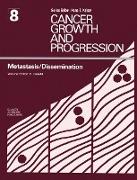Thinking About Social Policy
BücherAngebote / Angebote:
The book is part of the 5-volume series “German Social Policy”, a unique multidisciplinary approach to the history of German social policy written by the doyens of their respective disciplines. The volumes expound the contribution of the German tradition to the rise of social policy in the Western world in the 19th and 20th centuries. Germany pioneered modern social policy in the 19th century when Bismarck introduced social insurance. After the Second World War, Germany’s Social Market Economy became a model of social integration. The volumes cover the history of ideas (volume 1), the legal and political history before and after 1945 (volumes 2 and 3), the German Democratic Republic (1949-1990) and the impact of German reunification (1990) (volume 4). Volume 5 embeds the German case in a major comparative study of European welfare states, complemented by a study of the USA and the Soviet Union. The volumes also yield insights into general theoretical issues of social policy beyond the empirical case of Germany. Each volume has an introduction by the editor who summarizes the contribution made by the volumes and looks into the future of German social policy.The book traces the political history of the concept of social policy. „Social policy“ originated in Germany in the mid 19th century as a scholarly term that made a career in politics. The term became more prominent only after World War II. Kaufmann, the doyen of the sociology of social policy in Germany, argues that „social policy“ responds to the modern disjunction between “state” and “society” diagnosed by the German philosopher Hegel. Hegel’s disciple Lorenz von Stein saw social policy as a means to pacify the capitalist class conflict. After World War II, social policy expanded in an unprecedented way, changing its character in the process. Social policy turned from class politics into a policy for the whole population, with new concepts – like "social security", "redistribution" and "quality of life" - and new overarching formulas, "social market economy" and "social state" (the German version of “welfare state”). Both formulas have remained indeterminate and contested, indicating the inherent openness of the idea of the “social”.
Folgt in ca. 5 Arbeitstagen




